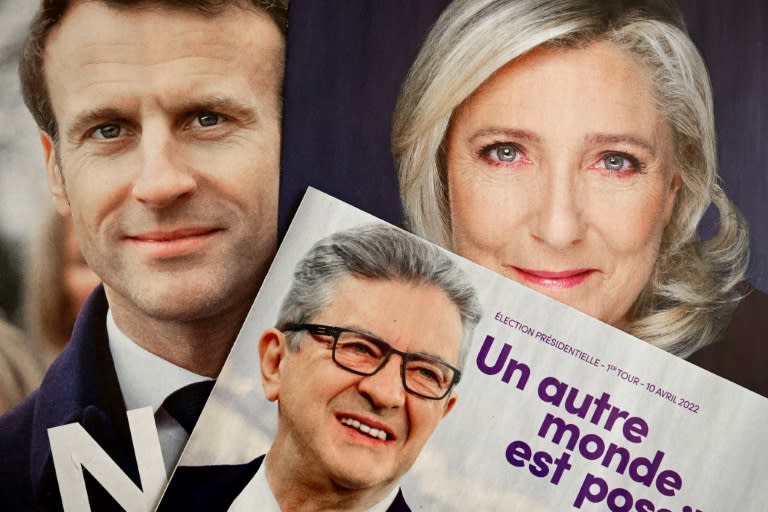Almost all the debate surrounding Germany's economic ties with Russia since the invasion of Ukraine has focused on gas and oil. With good reason — Germany buys more Russian oil and gas than any other European country, making energy Russia's most lucrative import to Germany by far.
However, many German companies rely on a steady supply of other Russian exports, particularly raw materials such as nickel, palladium, copper and chromium.
Nickel is used in stainless steelmaking but is also an important component for lithium-ion batteries which are needed to power electric cars. Palladium is also vital for carmakers, as it is a critical component in the production of catalytic converters, which clean exhaust fumes in petrol and hybrid vehicles.
In 2020, Russia was Germany's biggest provider of raw nickel, accounting for 39% of the country's supply according to the MIT Observatory of Economic Complexity, a trade tracker.
It also provided around 25% of German imports of palladium, and between 15% and 20% of the heavy metals chromium and cadmium, which have a range of industrial uses. Russia also accounted for 11% of Germany's refined copper imports in 2020, 10.9% of its platinum and 8.5% of its iron ore.
Nickel and Daimler
A recent study by the German Economic Institute (IW), a Cologne-based think-tank, identified several raw materials imported from Russia which would be difficult to replace for Germany. "New trade relations with alternative export nations for these raw materials are essential," the institute said in a statement.

Nickel is important for making lithium-ion batteries for electric cars
Nickel is particularly important to consider. Germany's second-biggest import partner for raw nickel in 2020 was the Netherlands at 29%. But Russia is the market leader, supplying around 20% of the world's purest form of the metal, known as class 1 nickel.
High grade nickel has been in increasingly short supply for a few years now. The boom in electric vehicle production around the world — which needs high-grade nickel for batteries — has seen demand surge.
Tesla CEO Elon Musk has frequently tweeted about the lack of nickel. "Nickel is the biggest challenge for high-volume, long-range batteries!" he wrote in July 2020. "Australia & Canada are doing pretty well. US nickel production is objectively very lame. Indonesia is great!"
Class 1 nickel prices had already doubled over the last two years but Russia's invasion of Ukraine prompted fears that Moscow could impose an export ban. A trading frenzy in early March saw prices hit record highs, with the London Metal Exchange even suspending trading for a period, the first time it had taken such action in 37 years. Nickel prices have gone up 400% in 2022 alone.
Volkswagen — which has effectively staked its future on rapidly becoming an EV power — recently announced that it had struck an agreement with the Chinese companies Huayou Cobalt and Tsingshan Group for a joint venture to secure raw cobalt and nickel supply in Indonesia, one of the world's biggest producers.
Export bans, import bans
However, uncertainty over Russian raw materials will continue to stalk the market. Some analysts have predicted that the nickel crisis alone will add at least $1,000 (€919) to the costs of a new electric car for consumers.
The VDA, the trade body for German carmakers, says the war in Ukraine will lead to further disruption of vehicle production in Germany. "In the long term, the car industry is facing shortages and higher prices of raw materials," it said in a statement.
Not only carmakers are affected. In 2018, German chemicals giant BASF joined forces with Russia's Norilsk Nickel, the world's largest producer of refined nickel, for a deal which would see the Russian company supply BASF's new battery materials production facility in Finland with nickel and cobalt. Such deals are now being heavily scrutinized.

Norilsk is one of Russia's nickel-mining centers
Although Moscow did not put materials such as nickel on the export ban list it released in March, there remains a chance that sanctions either from Moscow or Brussels will end the flow of such raw materials to Europe.
On Friday, the EU announced import bans on several Russian products including coal, caviar, wood, rubber, cement and vodka. However, nickel and other commodities exported in high volume to countries such as Germany were left off the list.
Small potatoes compared to energy
Even if the sale of Russian nickel to Europe is not legally prohibited, the overwhelming pressure on German companies to cut business ties with Russia continues to mount in practically every sector.
Yet while myriad economic and business links between Germany and Russia die away and will continue to do so in the face of the outrage over what is happening in Ukraine, almost every scenario is dwarfed in significance by the possible consequences of an embargo on Russian oil and gas.
Many experts and business leaders have argued that Germany's economic prosperity of recent decades has largely been built on the cheap supply of Russian energy.

Ultimately, other German-Russian economic links are dwarfed by the energy question
BASF head Martin Brudermüller told the Frankfurter Allgemeine Zeitung that a sudden ban on Russian oil or gas could lead to an economic crisis as bad as any in Germany since World War II, and that his company would have to stop production if natural gas supplies fell to less than half the current usage.
Some disagree with such strong assessments. A study by the German National Academy of Sciences, Leopoldina, said ending supply immediately would be "manageable."
The fact that something as stringent as an outright ban on Russian energy is being seriously debated does make one thing clear for any German business with ties to Russia, regardless of their nature: Nothing is off limits, regardless of how economically "critical" it may be.
Edited by: Hardy Graupner






























